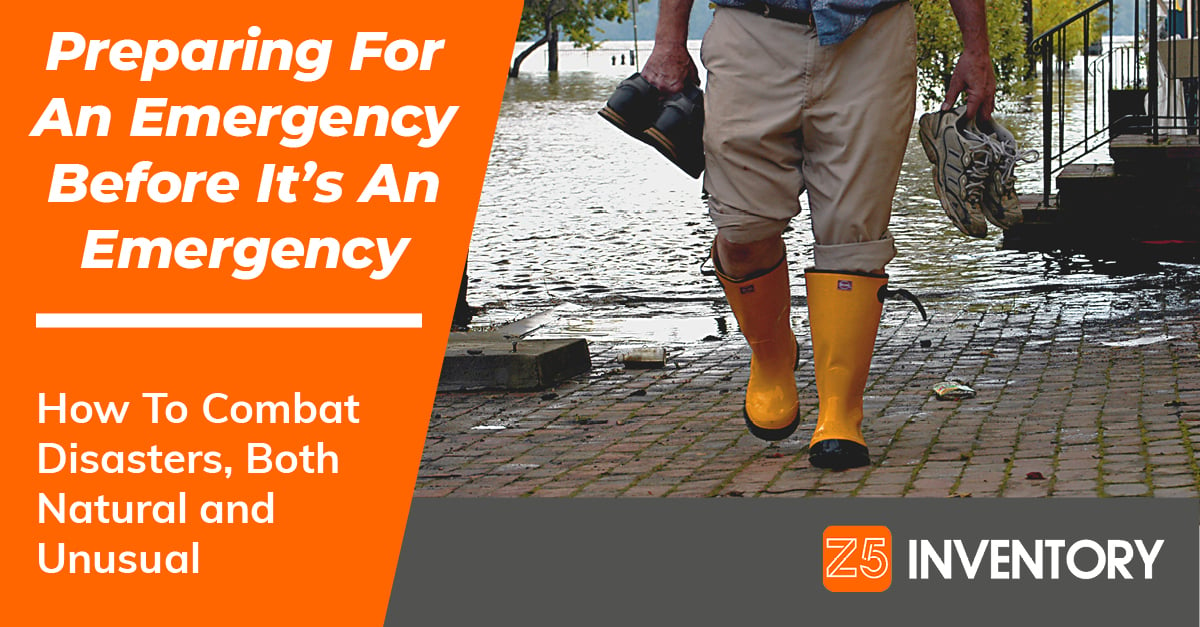The Best Emergency Response Is Emergency Preparation

Hurricanes. Fires. Earthquakes. They're attention-grabbing, especially for healthcare providers. But there are less obvious emergencies that deserve your attention.
Unusual Disasters
Hopefully not every challenge is as confronting as a wall of water or fire coming to wipe us off the face of the earth. Not every problem is the earth opening up to swallow the patients you're charged to protect. But that doesn't mean they're not dangerous.
One of the biggest threats to the smooth continuation of care is other people. The disruption can be caused by forces as big as gigantic governments clashing over trade, or as small as a single employee at your facility. When enough small people are unhappy about the way that healthcare is provided, they can make sure it isn't provided that way anymore.
Also on the people front: we know we've talked a lot about preparing against hacking and ransomware. A lot. If you've spent any time on this blog, you know it, too. So we won't insult your intelligence by repeating it all here. Just don't forget that this is a devastating event for your patients.
Some of the challenges are less obvious side effects of the obvious natural disasters. Those dealing with the macro problem of a hurricane might not always consider the micro problem of accessing their patients' records during a hurricane. And that can be just as deadly as 150 mph winds.
Speaking of which...
The Big Stuff
Obviously you ought to be prepared to meet all manner of natural disasters. Even if you're not having to evacuate your hospital as you read this (please, if you are, focus on the evacuation; supply chain internet advice about can wait), there will come a time when the environment will threaten your patients.
Even if it's just heat. Your community becomes more vulnerable as temperatures rise, and that includes your fellow healthcare workers. Fatigue sets in easier, and we're probably all familiar with the kinds of shortcuts and judgment calls that come into play when healthcare workers are overworked.
Unfortunately, extremes of weather will only get more extreme. And that's caused by the ongoing action of people. And, yes, healthcare. The US healthcare industry has a disproportionate effect on the environment - and not in a good way.
And you know the amount of plastics that healthcare requires - specifically everything that gets thrown away? That doesn't help, either.
What To Do About It
Yes, healthcare is a special case when it comes to tackling many of these issues. No, of course you can't take advantage of many of the suggestions for reducing your plastic usage, because you have to negotiate concerns of sanitation and efficiency.
But that's not completely an excuse. Healthcare procurement pros like you can refocus their ordering around usage. They can find an outlet for the medical product that would otherwise go straight to the landfill.
There are tricky areas like earthquake preparedness in California. Whether a facility is forced to shut down rather than upgrade, or it stays open but isn't up to code, the community is put at risk. There's no great answer. That's a hard reality to face.
But not facing the issues doesn't make them go away.
Hurricanes hit every year. So do tornados, wildfires, and earthquakes. So do hackers, government disruptions, and labor disputes. You're doing your community a disservice if you don't plan ahead for something big.
(If you can't get buy-in without a financial incentive, keep in mind the hit to profits that healthcare providers take every year due to natural disasters. And it's also worth noting that these figures are approximately the same as what hospitals lose throwing away supplies every year. Seriously.)
As some of the wisest among us say: it pays to be prepared.
